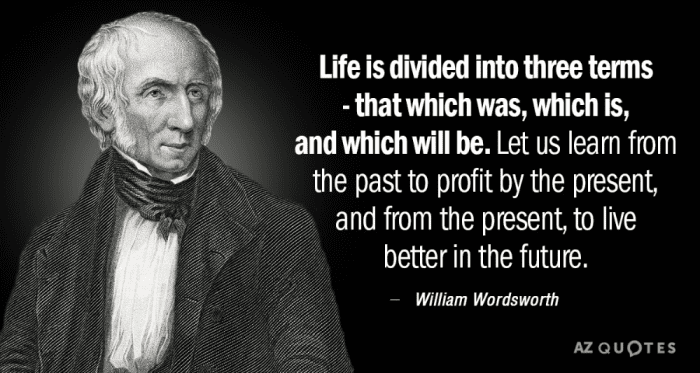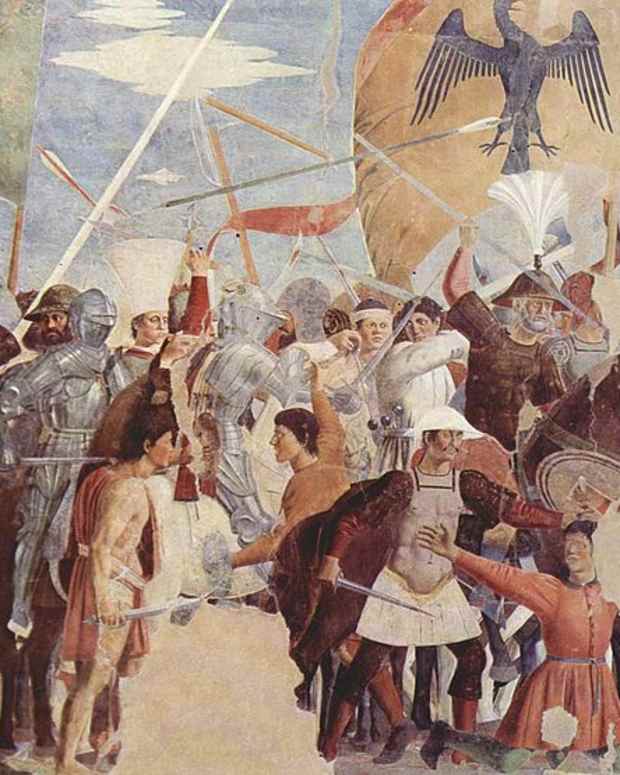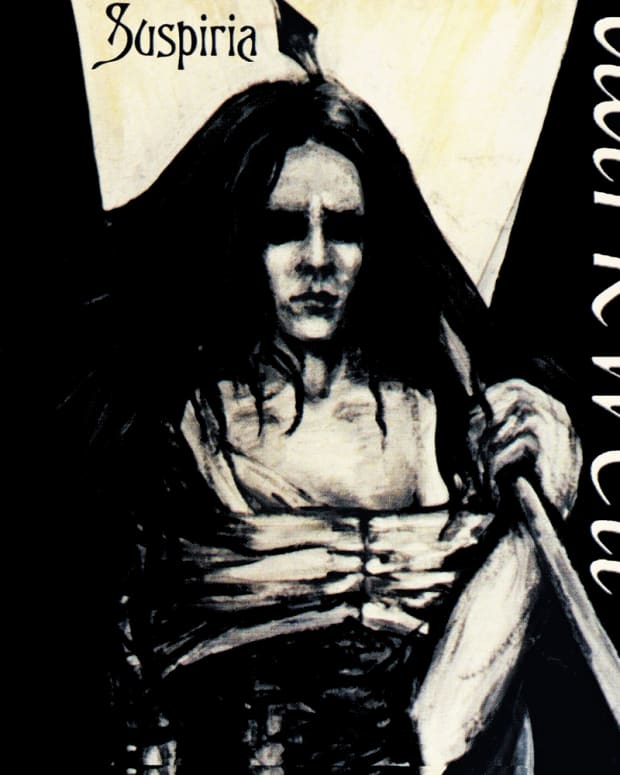The Origin of the Romantic Age-Life and Poetic Achievement of William Wordsworth
My Love of Poetry
When I was studying English Literature in college, for my Master’s degree, poetry was my favorite subject. I was fascinated by the poets of the Romantic Era like William Wordsworth, John Keats, William Blake, Coleridge, Lord Byron, Shelley and many other great poets. Every time I read their poems, I used to experience a feeling of hope, optimism, and joy.
So, what makes this era so important and what drove these poets to write romantic poetry. The sensibility of these poets was shaped by the events that took place in the larger world which exerted a strong influence on all the thinkers and writers of that time. Let us take a look at changes in the political and social world at the time, and the causes that led to the birth of the romantic era in English Literature.
Origin of the Romantic Age
The Romantic Age in English Literature began around 1780 and continued till the First Reform Bill of 1832, and the accession of Queen Victoria to the throne in 1837. This period is called the Romantic Age in English Literature. There was great turmoil and turbulence in the political and social life of England. The Romantic movement was the result of the winds of change sweeping the political and social world.
The French Revolution and the declaration of Rights of Men and Citizens had a great impact on England. Many patriotic clubs and societies came up in England, upholding the doctrine of Liberty, Equality, and Fraternity, the slogans of the revolution. After King George announced the independence of the United States of America, the notions of liberty and freedom were enhanced in England.
This was also a time of intense industrialization and economic inequalities. The invention of steel and machinery had increased England’s wealth dramatically, but the unequal distributions of that wealth caused immense distress. The laboring class which included children had to work for long hours in unbearable conditions. All these had a powerful impact on the creative minds of that era.
Literary Characteristics of the Age
The Romantic movement heralded the revolt against the Neo-Classic Age which preceded it. The previous century with its practical outlook on life was an age of prose and intellectual poetry. Reason, logic and wit were the keywords of the Neo-Classic Age. But the Romantic Age was an age of poetry. The glory of this age is in the poetry of Wordsworth, Coleridge, Byron, shelly, Keats and Southey. This movement in literature is the expression of life as seen by imaginative rather than by prosaic common sense. The six main characteristics of this age are:
- The Romantic Age was marked by a strong reaction against rule and custom. The liberty of man and individual is celebrated. This leads to a protest and revolt against any kind of bondage which restricts the free human spirit.
- The movement was the expression of individual genius rather than set rules. The poets chose their own form and subject matter. They did not talk only about the conventional or usual. They varied in their approach bringing their own personal experiences, attitudes and feelings to the poems.
- The Romantics emphasized the importance of imagination over intellect. Poetry came from the poet’s emotion and imagination. It reflected the intense passion and feelings of the poets. It is the heart rather than the mind that molded poetry during the time. It was to be felt, experienced and enjoyed rather than analyzed and understood.
- Romanticism was marked by an intense human sympathy. Sympathy for the poor and a cry against oppression were some of the recurrent themes of poetry. In its more serious mood, it led to melancholic contemplation of life.
- The Romantic poets turned away from the rich, famous and exalted. They were more into nature and the simple lives or ordinary folks. Nature occupied a central place in their verse. They were fascinated by the mystery of the universe rather than man’s orderly creations. They were not interested in people for their social status but their worth as human beings.
- There was also a strong fascination for the strange and exotic. The fables and legends of the Middle Ages appealed to them. This led to the revival of the ballad form which had been neglected by the neo classics.
William Wordsworth- Early Life
William Wordsworth was born in 1770 in Cockermouth, Cumberland. His childhood was spent in close companionship with nature, playing in the river all day in summer. He went to school in Hawkshead, in the beautiful lake regions. Here the beauty of nature attracted him more than the discipline of the classroom. During his school days he enjoyed many imaginative experiences among the hills and lakes of that area which told him of the firm bond that exists between man and nature. In later life he recalled the period as the seed time of his soul when he grew.
Start of a Poetic Journey
Later when he went to St. John’s college in Cambridge, he was an ordinary scholar who followed his genius rather than the curriculum. In 1790-91 when he visited France, he was filled with the spirit of revolution. After returning he went on a tour of England, when he visited Tintern Abbey. Soon he returned to the Lake district and joined his sister Dorothy. Here he met Coleridge and from this point begins a most fruitful friendship that changed the very course of English Poetry. The two poets found each other’s company stimulating and creatively productive. The outcome was the production of the Lyrical ballads, in which the two collaborated.
William Wordsworth’s poetry met with much ridicule and scorn initially. The critics were merciless, but the poet was steadfast in his purpose. Slowly he gained repute and was soon hailed as one of the greatest poets of England. In 1843 he was made poet laureate. In 1850 he died peacefully at the age of eighty.
Poetic Achievement
William Wordsworth was rightly considered the father of English romanticism because it was with the publication and more important the preface of the Lyrical Ballads, that this movement in poetry was given voice.
He is the first and foremost poet of nature, can be even said, a worshipper of nature. It did not appeal to him only for her aesthetic beauty and loveliness but more so because of the deep essence, the divine presence he sensed was there in nature. Nature gave him joy and comfort. His vivid description brings to the reader’s mind the very picture that he intends to evoke.
Worshipper of Nature and Inner Spirit of Human Life
After nature, what interested Wordsworth most was man. It was man in his simple state-the shepherd, the huntsman, the solitary reaper etc. It was for this reason that he chose incidents and situations from common life as of the themes his poems. And so, the theme of childhood is predominant in his poem ‘the immortality ode’ because he felt that a child is free from outside influences and closer to its natural state.
He was a poet of human life and the common man in whose life he found beauty and dignity. His rich imaginative power and vivid evocative strength of description helped transform even the ordinary into the poetic. William Wordsworth wrote not merely with sight but insight that helped him look at the world with his soul and perceive the inner spirit or divine manifest all around him.
Important Literary Figure
The beauty of William Wordsworth’s poetic achievement is enhanced by a language that was not exalted or strange but as close to everyday speech as possible. He has stated that he wanted to write poems in a language really used by men, with simple words, and an easily understood style which he achieved with wonderful effect.
All these contribute to make Wordsworth an important literary figure, whose work and initiative was to have a lasting effect on a whole generation of poets.
Poem-'Tintern Abbey'
“Lines composed ’A few Miles above Tintern Abbey, on Revisiting the banks of the Wye During a tour, July 13, 1798, is the complete title of this well know and magnificent poem. This was the last poem to be included in the collection of the ‘Lyrical Ballads’. Along with the immortality ode, these poems are the two most important in William Wordsworth’s collection.
In the summer of 1794, he had visited Tintern Abbey again and the poem was written at that time. Ibn the poet’s own words, “I began after leaving Tintern, after crossing the Wye and concluded it just as I was entering Bristol in the evening after a ramble of four or five days with my sister. Not a line of it was altered, and not any part of it written down till I reached Bristol”.
Summary of the Poem
The poet revisits the place, after a gap of five long years. Once again, he hears the murmur of the Wye and sees the steep and lofty cliffs, the dark sycamore., the plots of cottage ground, the Orchard with its unripe fruits. Once again, he beholds the hedge rows, the woods, the pastoral farms, and columns of smoke rising from the chimneys.
The beautiful forms that he has seen have not been blotted from his memory in spite of a long absence. These beautiful shapes of nature have been a source of comfort to him and have sustained him when he was amid the weariness, noise, and bustle of city life. They have urged him to become tranquil and calm, and acted as a stimulus to kind and sympathetic deeds. They have also had a deep spiritual effect on him. He owes to them that exalted mood in which he can perceive reality above and beyond earthly things by which this weary weight of life becomes more bearable. In these moments of illumination, when everything is wrapped in a state of joy and harmony, he has an insight into the life of things.
“….with an eye made quiet by the power
Of harmony and the deep power, of joy, we see into
The life of things.”
The poet knows that whenever he is oppressed by the unprofitable, meaningless business of the world, its fret and fever, he has his mind and spirit turned to this wooded landscape and river Wye for comfort. These memories sustain him.
Now once again the poet is physically present on the banks of the Wye and the old picture, he has in mind is revived again. He stands not only with pleasure of the present, but knowing that in the moments of seeing the Wye in present joy and nourishment for the future as well.
“…I stand, not only with the sense
Of present pleasure, but with the pleasing thoughts,
That in the moment there is life and food for future years”
The poet contrasts his present state with his earlier self. In childhood he enjoyed nature only through his senses. At that time, the sound of the river, the beautiful colors and lovely forms of hills and wood attracted his hungry soul but it was not touched by the spiritual or philosophical. But now, he discovers nature is a living spirit, the same spirit that dwells in the setting sun and the ocean, in the air and the blue sky and in the minds of man. It is for him
“A motion and a spirit, that impels,
All thinking things, all objects of all thought,
And rolls through all things.”
So, he is still a lover of the beauty of Nature, at the same time his thoughts and soul are stimulated by Nature which he sees with his senses and feels with his soul. Nature has thus become the nurse, the guide, and the guardian of his heart and the soul of all his moral being.
In all this he had his companion, his dear sister on the banks of Wye. The poet sees in his sister’s eyes his former self, in her voice hear the way he was five years back and when he came on his first visit to the Wye full of joys and raptures.
The poet then makes a prayer for this sister, knowing that nature never betrayed the heart that loved her. He asks his sister to continue enjoying the beauty of nature. If in future she is affected by loneliness, fear or pain she can look back on these hours of delight spent in the Wye valley with her brother. She will also find comfort and tranquility in the impressions of nature stored up in her mind just as he did.
“If solitude, or fear, or pain, or grief,
Should be thy portion, with what healing thoughts,
Of tender joy will thou remember me, and these my exhortations.”
If in the future he should be separated from her she should not forget how they stood together on the banks of the Wye. She must remember that her brother came to the Wye as a worshipper of nature. The landscape, woods, hill and river were dear to the poet both for their own sake an also because he was accompanied by her. In his eyes, Dorothy’s presence enhanced the significance of the visit.
This poem is significant for its treatment of Nature and revealing the whole scope and depths of William Wordsworth’s attitude towards nature. In Tintern abbey we see the poet as a worshipper of nature. A mystic and transcendental note is struck when he describes how contemplation of nature developed an inner vision that enabled him to see into the life of things. In this poem he also clearly states his faith in nature that ‘Nature never did betray the heart that loved her.’ Thus, it is also a philosophical poem that harmonizes poetic beauty with the romantic philosophy of William Wordsworth, in relation to nature, man, divinity and life.
References
- William Wordsworth - The Recluse and The Prelude | Britannica
The second consequence of Wordsworth’s partnership with Coleridge was the framing of a vastly ambitious poetic design that teased and haunted him for the rest of his life. Coleridge had projected an enormous poem to be called “The Brook,” in which he - William Wordsworth - Wikipedia
- Romantic literature in English - Wikipedia
- Romanticism - Wikipedia
- Poet Seers » On the Poetry of William Wordsworth
This content is accurate and true to the best of the author’s knowledge and is not meant to substitute for formal and individualized advice from a qualified professional.
© 2022 VIDYA D SAGAR





















